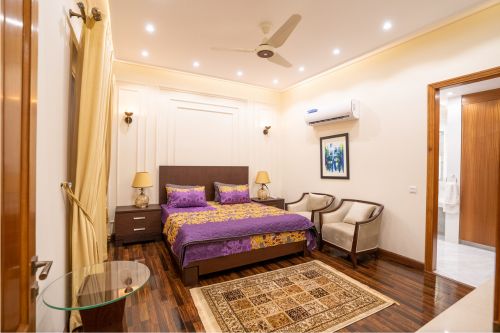Table of Contents
The Belgian housing landscape
Belgium, a country famous for its impressive history, multi-layered society, and exquisite chocolate dishes, offers numerous travelers and expatriates a scenic destination. Just like any other European country, searching for cheap housing in Belgian lands can be a challenge. This blog will unravel the best ways to traverse the options for accommodation in Belgium and get yourself a decent residence without overspending.
Understanding the Belgian housing market
It is important to understand how the housing market operates in Belgium before you start looking for affordable accommodation. The housing environment is different in various parts of Belgium, including rural and urban areas. Bigger cities such as Belgium, Antwerp, and Ghent normally have more demand than other areas with the subsequent high rent rates. However, smaller towns and rural areas might be cheaper, and such locations can be a substitute for comfort and convenience.
Research extensively
Finding cheap accommodation in Belgium starts with proper research. Consider checking online platforms, real estate websites, or local classifieds to see what is currently available. Get acquainted with average rent prices in different regions to get a realistic estimation of total expenditure on housing.
Consider different regions
Other cheaper options may exist outside Brussels, where the political and cultural heart of Belgium lies. One can consider exploring other cities such as Leuven and Mechelen, linked with the major metropolitan areas, but are less expensive.
Timing matters
Your timing in searching for reasonable accommodation is crucial as well. The rental market in Belgium tends to be seasonal, with more properties offered in the summer. You can also arrange your move to take advantage of some promotions, discounts, and higher availability of movers during that time of the week.
Tips for finding affordable accommodation

Now that you have a solid foundation of the Belgian housing market, let’s explore some practical tips and tricks for securing affordable accommodation-
Local networking
Interact with locals and other expats in person and via the Internet. Locals may have some hidden gems to help new tenants in the housing market, which you can’t usually find on online search engines.
Utilize real estate agencies
Although finding affordable apartments through real estate agencies appears contradicting, these can prove to be helpful sources. Some agencies offer cheap rentals and might be aware of some exclusive listings. It’s important that you tell them what your budget is, and then they will suggest an appropriate home for you.
Consider shared housing
Kot refers to shared housing in the Belgian language, which is a common option among students and professionals within their first years of employment. Shared room is like renting a room inside another bigger apartment or house where you share some of the amenities, such as the living room and kitchen, with other tenants. This helps reduce individual costs and can act as a bridge where they meet people from other cultures.
Explore short-term rentals
Think of short-term rents or short-lived accommodation in the beginning phase of your relocation. This gives you opportunities to visit the different local neighborhoods so that you can get to know them by being there without going into a contract of paying rent. Some landowners might also provide lower rates during extended periods of stay.
Be flexible with amenities
If you are looking for cheap accommodation, flexibility should be central in your search. Choose instead to forgo some of the amenities or look for older properties whose price tags might be lower. It is wise to be willing to consider various housing categories to expand your choices.
Negotiate rent
Don’t be afraid to bargain with the rent. This may not always succeed, but some landlords might be ready to reduce the rents, mostly if the house has spent more time on the market or if you commit to a longer lease.
Understand lease terms
Ensure that you have read the lease thoroughly before you put your signature on it. Note down other costs, such as maintenance liabilities and possible changes in rent. This will help in understanding and avoiding such financial burdens later.
Key takeaways
- Understanding the intricacies of the Belgian housing market is crucial. Recognize the differences between rural and urban areas, and be aware of the seasonal nature of the rental market.
- Consider exploring other cities such as Leuven and Mechelen for more budget-friendly options that are still well-connected to major metropolitan areas.
- Time your search strategically, taking advantage of seasonal fluctuations in
- the rental market. Summer months often offer more choices and potential promotions, making it a suitable time for relocation.
- Be open to compromise on amenities or consider older properties that may come with a lower price tag. Flexibility in your housing preferences can significantly expand your options.
If reading this blog was helpful and you have additional questions or need further assistance, please feel free to share your thoughts in the comments section below. Click here to contact us, and our team is here to provide more information on studying abroad and address any queries you may have.
Liked this blog? Read next: Why choose Arkansas State University for your study abroad experience
FAQs
Q1. What is the average cost of accommodation in Belgium?
Ans- The average cost of accommodation in Belgium varies depending on the region. On average, you might have to pay between €600 to €1,200 per month for a one-bedroom apartment.
Q2. Are utilities included in rental prices in Belgium?
Ans- Rent might include utilities such as water, gas, and electricity in some cases. However, it’s common for tenants to cover these costs separately. Make sure to clarify the terms of the lease agreement regarding utility payments.
Q3. What are the typical lease durations in Belgium, and is there flexibility?
Ans- Lease durations in Belgium can vary, but standard leases are often for one year. Some landlords may offer shorter or longer leases, and it’s possible to negotiate the duration based on your needs and the landlord’s preferences.






